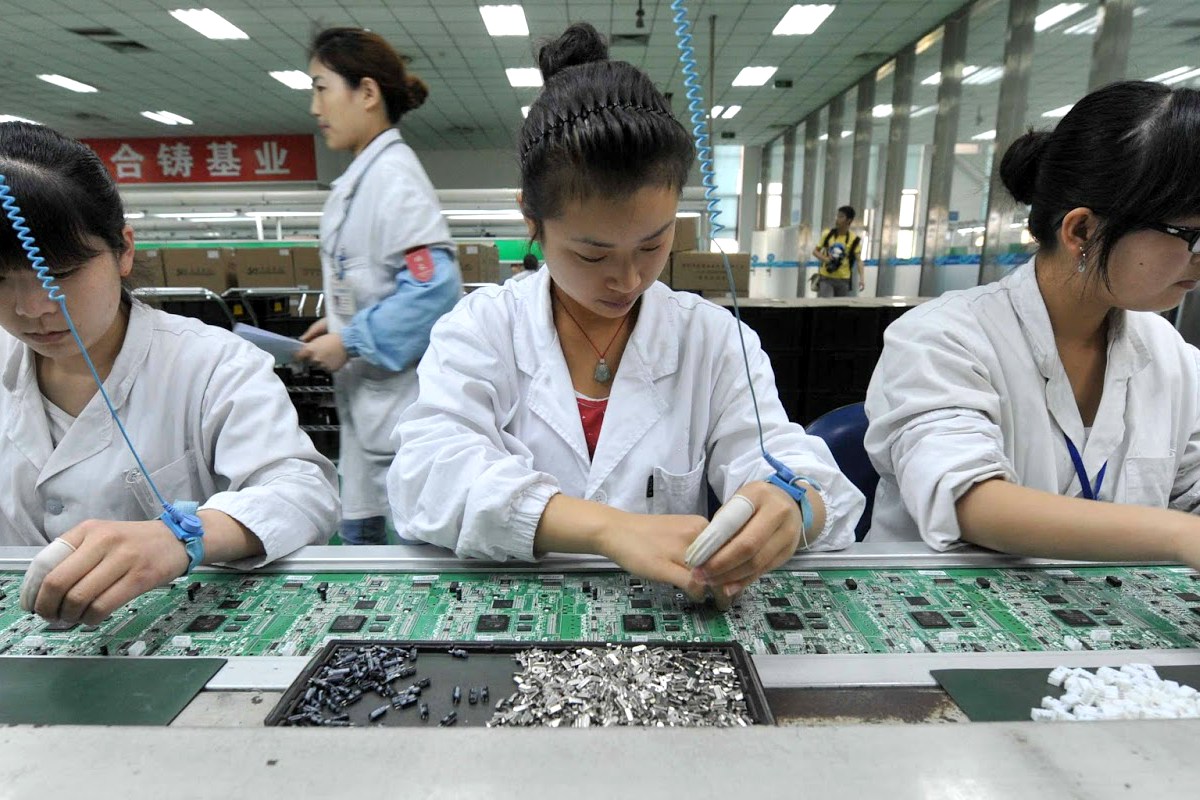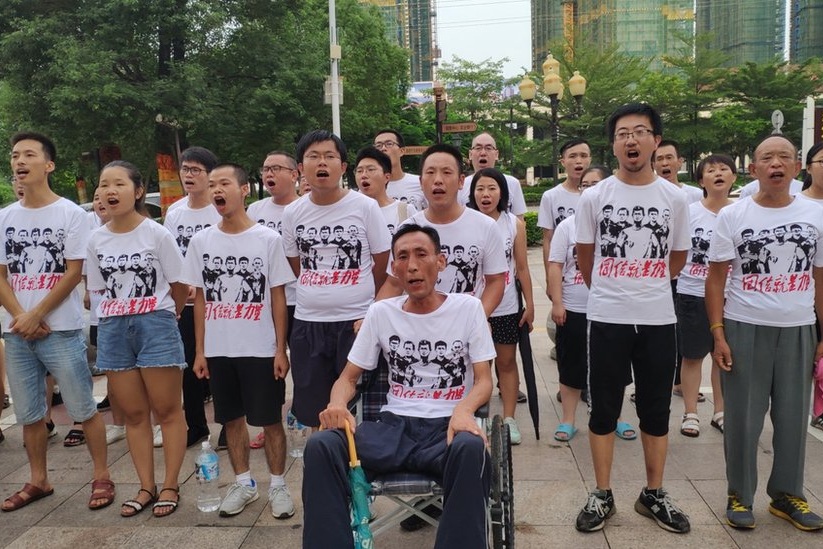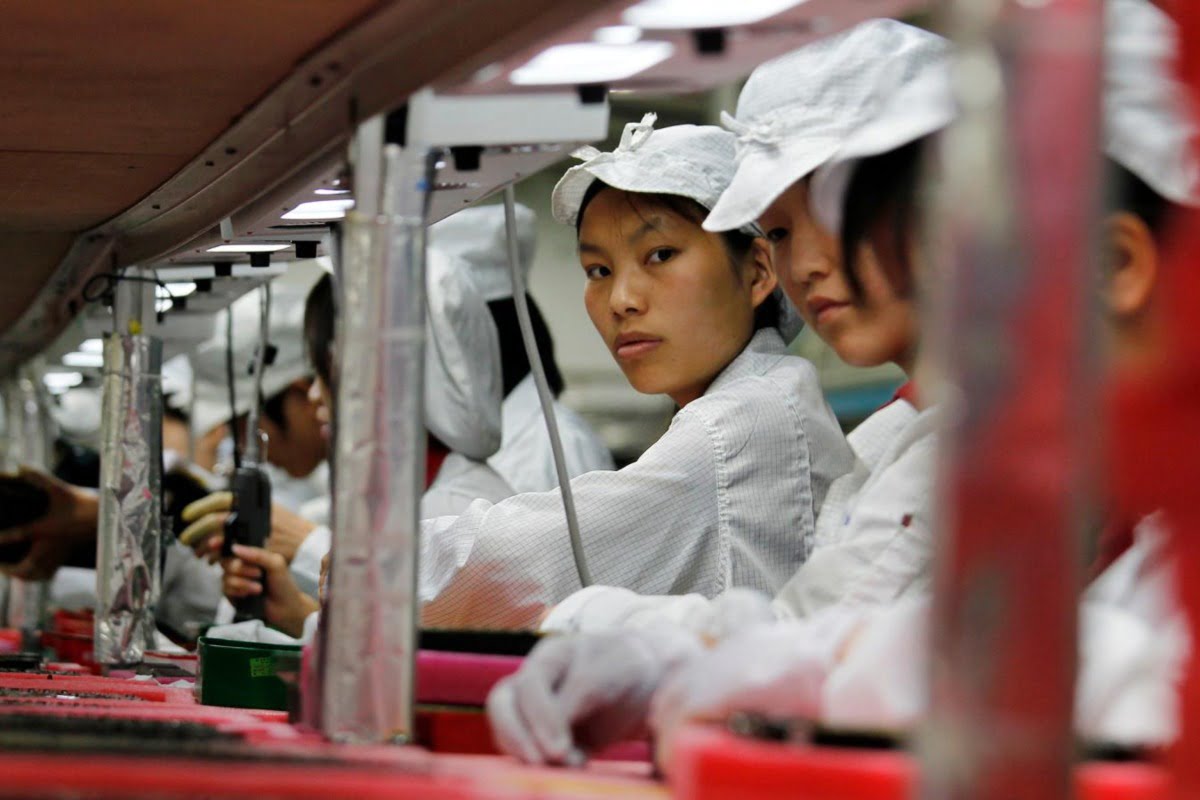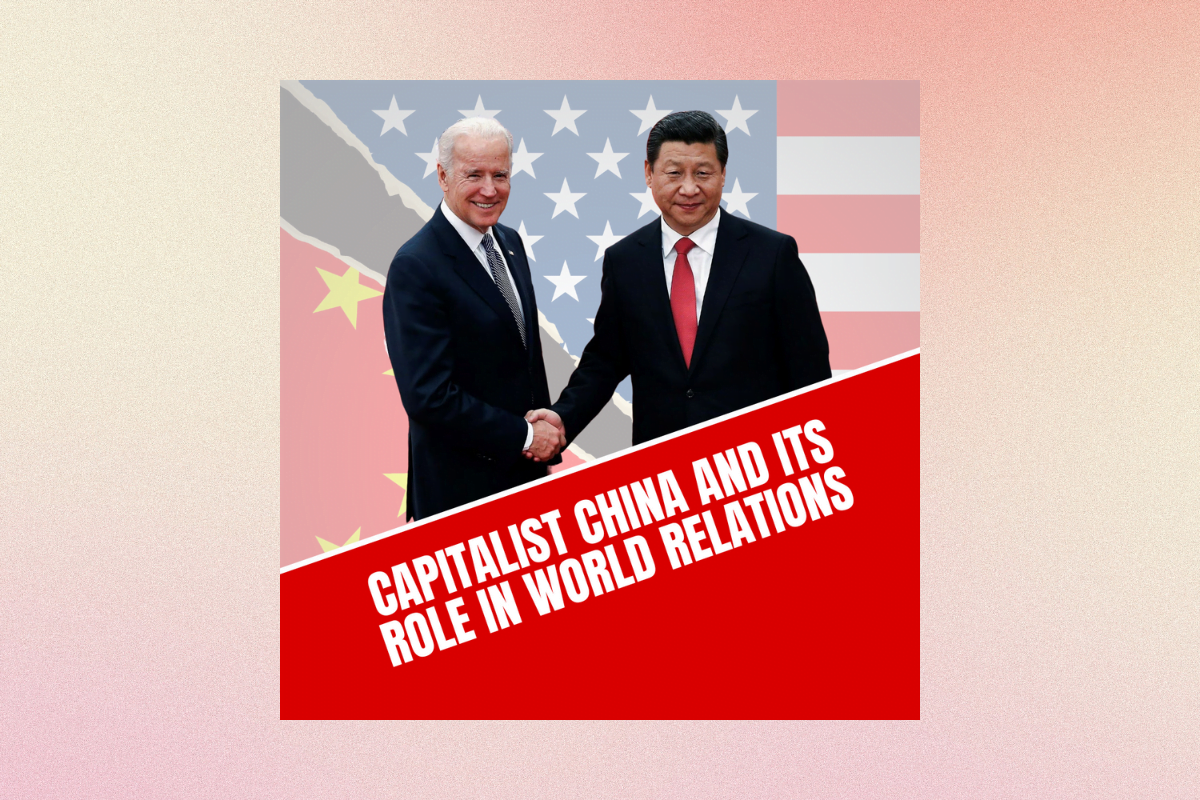The big tech monopoly has been found using student “interns” in its factories, forcing them to work in brutally exploitative conditions. But this is not just a case of one rotten capitalist apple.
News has recently emerged that Apple, the most profitable company in the world, has been sourcing its smartwatches from suppliers which illegally “employ” high school students to perform the duties of regular full-time assembly plant workers.
Sacom, a watchdog group, has interviewed 28 of these students, who worked at a Quanta Computer factory in Chongqing this summer on bogus “internships”. As reported in a recent Financial Times article, their testimony provides a damning indictment of the kind of labour conditions that give today’s tech monopolies their colossal profit margins.
“We are scheduled to work at night, from 8pm to 8am,” said one student. Only one day off is allowed per week”.
Another told how “about 120 students” from their school worked on the fourth floor of plant F5 of the Quanta site in Chongqing. “We repeat the same procedure hundreds and thousands of times every day, like a robot.”
Eleven of those interviewed said they had been told they would fail to graduate if they did not complete their “internships”. All 28 of them said they had worked overtime and night shifts!
Parasites
This is of course illegal in China. However, since Chinese capitalism is so dependent on its manufacturing sector, it is unlikely that anything serious will come of this discovery.
After all, this is not even the first time this has happened. Apple and another of its suppliers FoxConn, both acknowledged that this had been going on at a different factory just last year. At the time they said that they “would end the practice of student interns working extra hours”. And what a fine job they’ve done!
In truth, no matter what hollow words these parasites say when their dirty business practices are found out, the decision to illegally chase after unpaid labour is not one they take on a whim. It flows from the logic of the capitalist system itself – from the need to acquire as much profit as possible in order to expand into more market share than one’s competitors.
With workers in China increasingly asserting themselves to win higher wages through struggle, the bosses are desperate to find ways to keep costs down. Hence the use of the forced labour of school students to restore profitability.
Race to the bottom
 The Apple supply chain is not unique. It is reported that some local authorities in China actively encourage schools to supply factories with student labour, in an attempt to attract investment into their areas.
The Apple supply chain is not unique. It is reported that some local authorities in China actively encourage schools to supply factories with student labour, in an attempt to attract investment into their areas.
And this phenomenon is not just a result of the sub-par labour conditions in so-called “emerging economies” like China. A recent survey by Prospects found that 48% of young people (16-25) in the UK have taken unpaid internship roles.
The crisis of capitalism pushes companies into driving working conditions as far down as they possibly can, in order to extract as much profit from each working-hour.
At the same time, a bitterly competitive job market is created in which young workers are pressured into doing this kind of unpaid labour. In exchange they are given vague promises of finding regular employment in the future, thanks to the “experience” or “exposure” they will receive. The result is a tremendous waste of human potential.
If the economy was organised under a democratically determined socialist plan of production, without the profit motive, then the total work-hours needed to produce the goods society wants and needs could be spread out as widely as possible, with no loss of pay.
The drudgery of over-work and the tedium of forced idleness could be done away with forever. When one considers the tremendous productive power of modern machinery, the potential to realise this goal already exists. We only have to fight for it.
Chinese authorities increase crackdown on workers and students
Zhan Dou Zhe
 In recent months, a protracted struggle has been underway in China, with workers and students standing in solidarity against the pro-capitalist regime. This is highlighted by the recent, brutal clampdown on student activists involved in worker solidarity.
In recent months, a protracted struggle has been underway in China, with workers and students standing in solidarity against the pro-capitalist regime. This is highlighted by the recent, brutal clampdown on student activists involved in worker solidarity.
Although it was triggered by the local struggle of JASIC factory workers to establish a truly independent trade union, and the government’s crackdown focused mainly on them and the student-based “Jasic Solidarity” group, this battle is a significant reflection of wider social forces.
On 9th and 11th November, the authorities engaged in their latest round of summary arrests without due process, collaring more than 10 students and workers on the 9th, and three more on the 11th. Particularly graphic was the case of Peking University graduate Zhang Shengye, who was kidnapped on campus, and solidarity group cadre Tang Xiangwei, who was tackled by three or four men on camera in broad daylight.
Previous to this, the police had already started cracking down on the group back in July. In August, 50 student activists were raided and arrested by police, with several whose whereabouts remain unknown, including Shen Mengyu and Yue Xin.
The arrests continue a pattern we have previously reported on, with the arrested activists hailing from geographically wide-ranging cities such as Beijing, Shanghai and Guangzhou. In addition, their activity was not confined to the JASIC struggle: Yue Xin was a key organizer of #MeToo on Peking University, and they also investigated conditions in a factory that made shoes for Ivanka Trump’s brand, and supported workers suffering black lung disease.
It is clear that the ruling class in China is vigilant and perfectly conscious of its class interests. Despite the apparently modest size of the activist organization, the leadership of the Chinese Communist Party (CCP) knows that they represent broad and deep resentment seething among masses of workers. This, in turn, is a result of a brewing widespread crisis in Chinese capitalism, affecting not just this or that sector, but the nation as a whole.
Courageous class fighters
The fact that these courageous class fighters rally behind the banner of Maoism, which is the official ideology of the nominally “Marxist” ruling party, clearly does not protect them. The real class interests are revealed behind the mask.
We have reported earlier on how the official Marxist society in Peking University had previously been threatened with closure. Despite the officials backtracking and appearing to grant permission, the snatching of a student on campus, with the full cooperation of the university administration, demonstrates the insincerity of the government’s promised concession.
Similarly, on 7 November, 300 workers from Hunan province who had travelled to Shenzhen demanding reparations for contracting black lung disease on their job, petitioning the Shenzhen Department of Labour peacefully, were met instead with beatings and tear gas.
If there were any illusions left that by appealing to “genuine” Maoism and Communism, activists can hope for support from sections of the CCP or President Xi, incidents such as these – which will only increase with time – serve to educate more and more class-conscious workers and students through their own experience.
Those demagogues in the state who appeal to Communism are just as much part of the ruling class’s repressive machinery as the capitalists who openly proclaim themselves as such. Words such as “Marxism” are, for them, only meant as a sedative to put the masses to sleep. It is all right to say these words – as long as workers don’t take them seriously and get ideas of their own!
Solidarity with student and worker activists
No amount of repression, however, can stop fighters who are driven by sincere faith in the working class – it only increases their courage. To quote the stirring words from an appeal written on JASIC Solidarity’s official webpage:
“Among the abducted comrades are many graduates from Peking University and other top universities. In the eyes of society, they have the brightest halos from elite universities, and what awaited them could have been inexhaustible fame and fortune. Yet these elite students did not choose to enter the dog-race of mainstream society, but held firm to their sympathy with workers and social ideals, entering industry to serve their migrant worker siblings, or became workers themselves, sinking roots in industry, sacrificing themselves for the liberation of the working class without fanfare and without complaints.”
The students are valiantly continuing the campaign to free their comrades. In the process, those who reported on the abductions, such as Yu Tianfu, have had their WeChat (Chinese social media app) accounts banned and possibly forcibly escorted back home. However, in spite of all these repressive measures, there are no signs that the struggle will die down in the foreseeable future.
We stand in full solidarity with the worker and student activists in China. An injury to one is an injury to all, and their struggle is also our struggle. Far from weakening revolutionaries, repression will only steel and temper them as they learn from experience.
This experience needs to be combined with a clear-sighted and scientific Marxist analysis, which is the only method that can truly reveal the class interest behind the CCP’s slogans. On this basis the class struggle in China is destined to make rapid progress.






